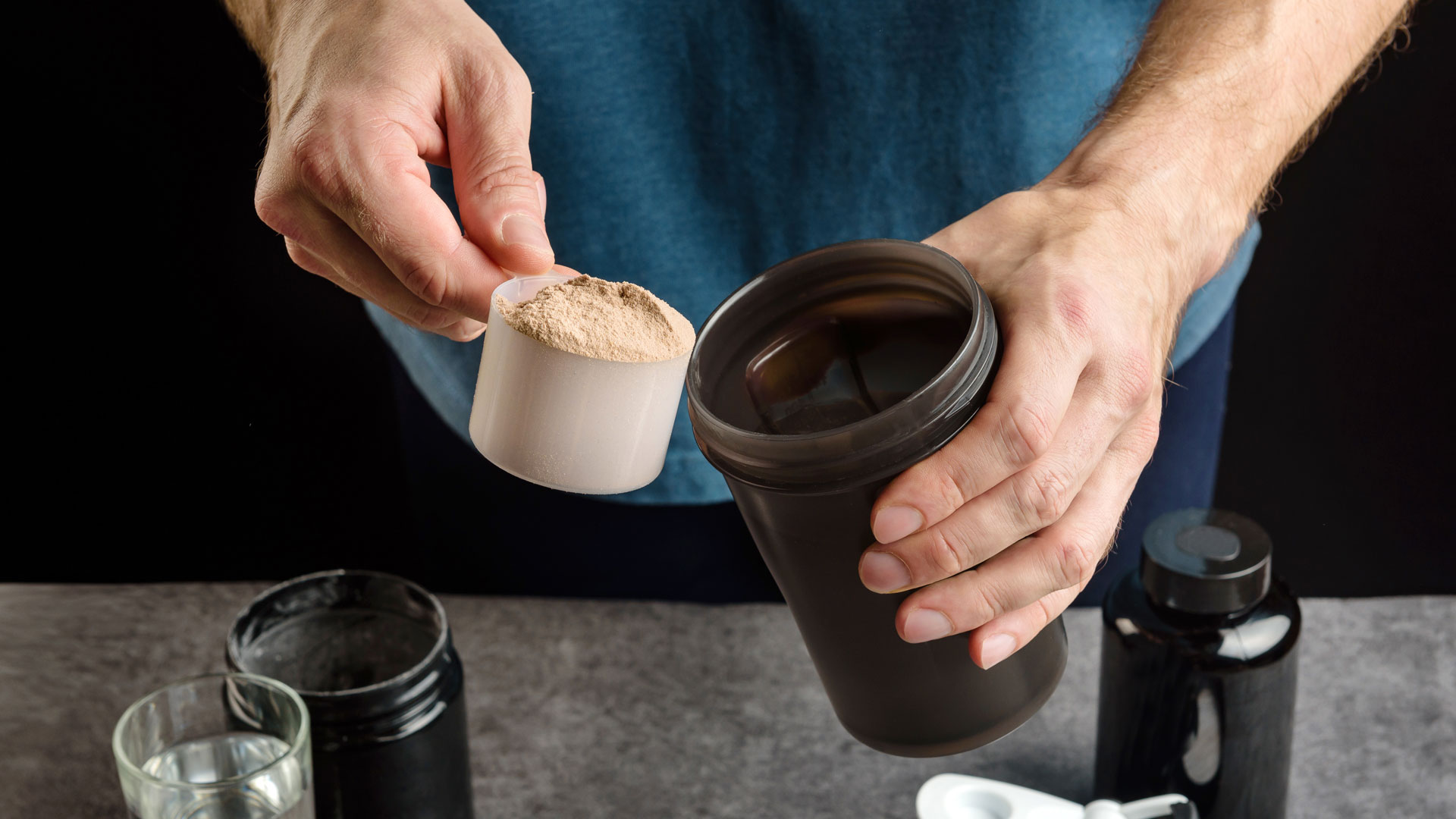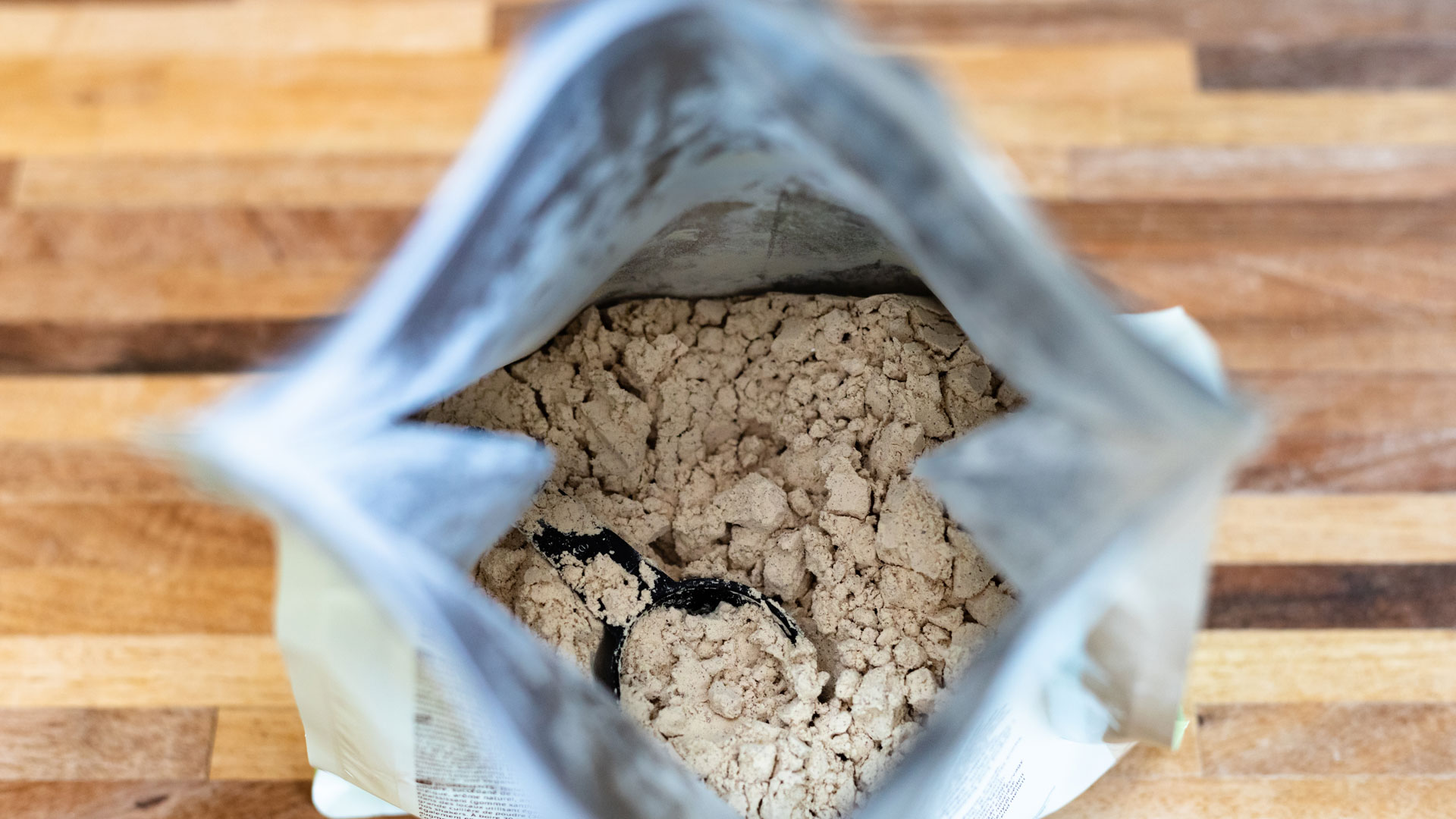
Plant protein vs whey protein - is there much between them? We’ve spoken to a health and fitness professional to get their input on the differences between plant and whey protein to help you make an informed choice.
We’ve also found some research studies from the top peer-reviewed journals that have put both types of protein to the test to see which comes out on top. Plus, we look at differences in calorie content and price, to see if plant protein or whey protein are better for your diet or for your bank balance.
If you’re ready to buy the best protein powder for weight loss read on to see if you should be investing in a plant-based source or going traditional with a classic whey protein powder.
Plant protein vs whey: What’s the difference?
We spoke to performance nutritionist, owner of pH Nutrition, and foodspring ambassador, Liam Holmes, who also has over 12 years of experience in elite sport, previously working at Tottenham Hotspur FC, Republic of Ireland national team, and Fulham FC. “Whey protein, derived from cow’s milk, is widely available, easily digestible (if you’re ok with having dairy), has a smooth texture, and comes in a wide range of flavors,” he says. “Additionally, if you opt for a whey protein concentrate, it won’t break the bank. Plant-based / vegan protein powders are derived from various types of plants, often including brown rice, pea, soy, and hemp. Depending on the brand, a powder may be made from one type of plant or a combination of plants.”
A clinical trial in the journal Sports Medicine compared two groups of young men, with one vegan group and one meat-eating group, and put them through a 12-week resistance training program. Both groups received protein supplements, with the meat eating group receiving whey protein and the vegan group receiving soy protein. The researchers found that there were no significant differences between either group and that a high protein intake, regardless of source, can support effective muscle growth and increased strength.
Another study in Nutrients journal compared plant vs whey protein taken for muscle recovery before sleep. There was no significant difference in results between the two groups of middle-aged men tested, indicating that there is little difference between the two protein sources.

Plant protein vs whey: Protein content
Holmes explains there isn’t much difference between the two: “Most whey and plant-based protein powders contain similar amounts of protein, with the average product providing 20–30 grams per serving,” he says. “Whey protein is considered a complete protein since it contains all nine essential amino acids, these form the building blocks of protein. The protein content of plant-based protein powder depends on which plant it’s made from. Some brands will combine multiple plant proteins in their products to ensure they contain all essential amino acids and BCAAs. So check the label if going plant-based!”
Start your week with achievable workout ideas, health tips and wellbeing advice in your inbox.
A 2021 review in Nutrients journal found that animal protein (including whey) tends to increase lean muscle mass slightly more than plant proteins, but that their effect on overall strength is the same.
Plant protein vs whey: Calories
Holmes tells us that plant protein tends to be slightly lower in calories, “On average a 25g protein serving of vegan protein is 97 calories. Compared to a 25g serving of whey protein coming in at an average of 120 calories,” he says.
A less than 25 calorie difference doesn’t seem much to worry about, so we think that the choice between plant protein and whey protein is still fractional.
Still unsure whether protein is for you? We’ve answered any questions you may have on how to use protein powder to lose weight and gain muscle, and is protein good for you?

Plant protein vs whey: Price
Holmes explains that there are high-end versions of both types of protein and that brand matters more than what the protein powder is made from when it comes to price. “The prices of plant-based and whey protein powders largely depend on the brand. In general, you can find both types with similar pricing,” he says. “Just keep in mind that the serving sizes of some plant-based protein powders are larger than others, so you may end up using more powder in less time, which can increase the overall cost.”
If you are looking for the Best protein powder for women, in particular, we’ve rounded our favorites to suit every budget.
Plant protein vs whey: Verdict
A meta-analysis in the International Journal of Sports Nutrition and Exercise Metabolism compared soy and casein (both plant-based) with whey protein and found that there were no noticeable differences between the groups tested, indicating that neither is significantly better than the other for improved muscle strength or muscle gains.
With this in mind, we leave the choice up to you; whether you prefer plant-based or whey protein there is little between them, so your decision can be dictated by price or ethics over any concern for nutritional value.
For more on this supplement, find out does protein make you gain weight? Or, if you've decided to switch to a plant-based diet, make yourself some delicious meals with recipes from some of the best vegan cookbooks.

Lou Mudge is a Health Writer at Future Plc, working across Fit&Well and Coach. She previously worked for Live Science, and regularly writes for Space.com and Pet's Radar. Based in Bath, UK, she has a passion for food, nutrition and health and is eager to demystify diet culture in order to make health and fitness accessible to everybody.
Multiple diagnoses in her early twenties sparked an interest in the gut-brain axis and the impact that diet and exercise can have on both physical and mental health. She was put on the FODMAP elimination diet during this time and learned to adapt recipes to fit these parameters, while retaining core flavors and textures, and now enjoys cooking for gut health.
